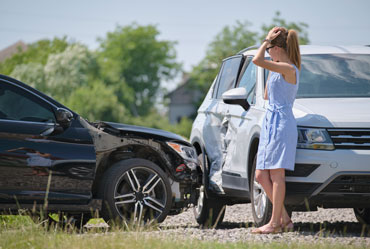Search

Life can change irrevocably in the blink of an eye, and car accidents are a sobering testament to this truth. Whether it’s a minor fender bender or a catastrophic collision, the experience can leave lasting scars—physically, emotionally, and financially. Each year, millions of people find themselves grappling with the aftermath of a car accident, and navigating this tumultuous period requires all the support you can muster. Understanding the steps to take after an accident and the resources available can significantly ease your journey to recovery.
1. Ensure Safety:
The safety of everyone involved is the immediate priority. If possible, move to a safe location away from oncoming traffic. Check yourself and others for injuries and call emergency services promptly if anyone requires medical attention.
2. Contact Authorities:
Reporting the accident to the police is crucial. An official report provides an accurate account of the incident, which is invaluable for insurance claims and any potential legal proceedings.
3. Document the Scene:
If you’re able, document the accident scene thoroughly. Take photographs of the vehicles, any visible injuries, and relevant road conditions. Exchange contact and insurance information with the other party involved.
4. Seek Medical Attention:
It’s essential to seek medical attention even if you feel uninjured. Some injuries might not manifest immediately, and a medical evaluation can identify and address hidden issues before they become serious.
Navigating insurance claims is one of the more daunting aspects following an accident. Here’s how to handle it effectively:
1. Notify Your Insurer:
Contact your insurance company as soon as possible to report the accident. Provide them with accurate details and cooperate fully with their inquiries.
2. Understand Your Coverage:
Familiarize yourself with your insurance policy. Understand what aspects of your claim are covered, including medical expenses, vehicle repairs, and any potential liability.
3. Consider Legal Advice:
If injuries are severe or if there’s any dispute about fault, it may be beneficial to seek legal counsel. A lawyer can help you navigate the complexities of insurance claims and ensure your rights are protected.
The emotional impact of a car accident can be profound, leading to anxiety, stress, or even post-traumatic stress disorder (PTSD). Here are a few strategies to help manage the emotional fallout:
1. Allow Yourself to Heal:
Give yourself permission to grieve and process the incident. It’s normal to experience a range of emotions, from anger to fear and sadness.
2. Seek Professional Help:
Speaking with a mental health professional can provide you with coping mechanisms and support as you process your emotions. Therapy or counseling offers a safe space to navigate these feelings.
3. Lean on Support Networks:
Family and friends can be invaluable during this time. Don’t hesitate to reach out and share your experience with those who care about you.
Returning to normalcy after an accident is a gradual process. Here’s how to regain your confidence when you’re ready to drive again:
1. Start Slowly:
Begin with short trips in familiar areas. Gradually increase the distance and complexity of your drives as your confidence grows.
2. Practice Defensive Driving:
Stay vigilant and adopt defensive driving techniques. Keeping a safe following distance and being aware of your surroundings can help prevent future accidents.
3. Take a Driving Course:
Consider enrolling in a defensive driving course. Professional instruction can reinforce safe driving habits and boost your confidence behind the wheel.
Car accidents are an unfortunate reality of life, but understanding how to navigate the aftermath can make a significant difference in your recovery journey. By following the correct procedures, seeking appropriate compensation, and addressing the emotional impact, you can mitigate some of the burdens that follow an accident. Remember, recovery is a personal journey, and seeking support when needed is not a sign of weakness but a step towards healing and reclaiming your life.